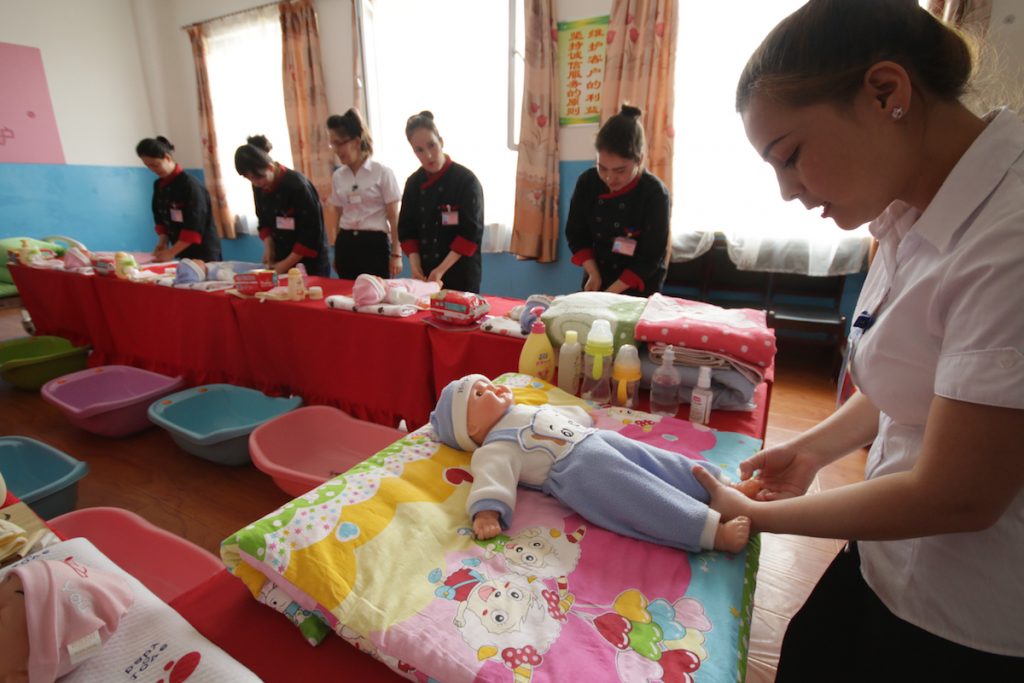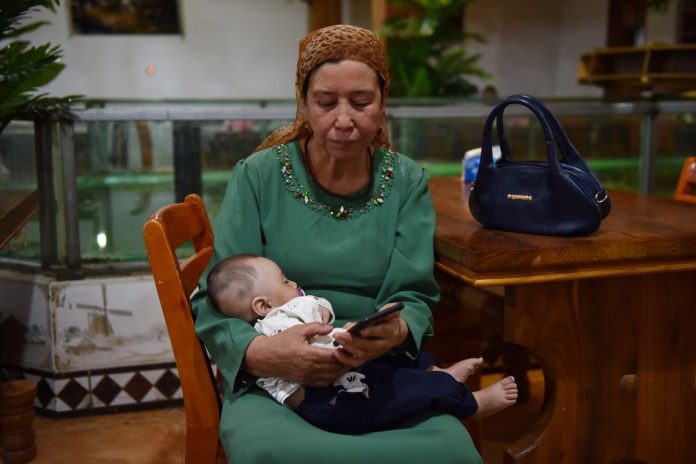Hospitals and medical facilities in China’s Xinjiang region were allegedly forced to strictly implement government family-planning policies by aborting babies born “in excess of family planning limits.”
A report from Radio Free Asia (RFA) quoted Hasiyet Abdulla, a Uyghur obstetrician who worked in several hospitals in Xinjiang for 15 years, saying that regulations were so strict.
Abdulla said there were newborns “who were killed after inducing labor,” adding that the killings were done in maternity wards “because those were the orders.”
She told RFA that the implementation of these family-planning policies aimed to “restrict” Uyghurs and other ethnic minorities to three children in rural areas and two in urban centers.
“Enforcement of restrictions requiring women to space out pregnancies by at least three years included killing newborns who had been born after being carried to full term,” she said.
She said every hospital in the Xinjiang region keeps a detailed record of every pregnancy, adding that these hospitals perform forced implantation of intrauterine devices to Uyghur women.
She made the statement after reports came out that Beijing was trying to control the birth rates among Uyghurs and other ethnic groups as part of a campaign to curb minority Muslim populations.
In June, the Jamestown Foundation noted what it described as “another troubling aspect of state policy,” which is the suppression of birth rates among ethnic Uyghur communities.
The report said the move included the mass application of mandatory birth control and sterilizations directed by the authorities of the ruling Chinese Communist Party.
It said that the project aims “to reduce the Uyghur population in Xinjiang relative to the numbers of ethnic Han Chinese, and … to promote more rapid Uyghur assimilation.”
Abdulla said babies who had been born outside of the family planning limits were not given back to their parents, adding that medical staff “would kill them and dispose of the body.”
“It’s an order that’s been given from above, it’s an order that’s been printed and distributed in official documents. Hospitals get fined if they don’t comply, so of course, they carry this out,” she said.

German researcher Adrian Zenz said the forced sterilizations and abortions targeting Uyghurs in the region could be considered as “genocide” under United Nations definitions.
Zenz, a senior fellow in China Studies at the Washington-based Victims of Communism Memorial Foundation, reported that population control measures in the Xinjiang region include “fines on Uyghur women with three or more children, mandatory pregnancy tests and examinations, and the forced implantation of IUDs or sterilization surgery.”
The report indicated that the forced population control measures led to some 84 percent birth rate reduction in two major Uyghur prefectures between 2015 and 2018.
The report also claimed that Uyghur women who refused to undergo the procedures were detained in internment or “re-education” camps.
Hua Chunying, spokesperson of the Chinese foreign ministry, said the allegation “was trumped up by an anti-China organization which receives significant financial support from the National Endowment for Democracy, and Adrian Zenz, a senior fellow in a research group on Xinjiang education and training centers set up by the US intelligence community.”
A report published on the official Xinjiang Web news site on June 8 showed that “eight million extra pregnancies are aborted in China each year.”
State-owned media network Urumqi News Online has quoted a former official at the XUAR Women and Children’s Hospital saying that the hospital “performs an average of 30, and a maximum of around 60, forced abortions each day.”
Chen Yanchun, former head of family planning of the hospital, said that they had performed some 533 abortions in November 2019 alone.
Shahide Yarmuhemmet, a staffer at the family-planning office of Urumqi’s New City district from 1996 to 2011, told RFA that the Uyghur people have to apply and get the approval of family planning offices in every administrative zone down to the countryside and local levels “before they can have a child.”
“The village cadres go into every house [to check up on women] — even individual apartment buildings have dedicated family-planning employees,” said Yarmuhemmet.
“They always know clearly who’s pregnant, and they report it to higher-ups. If pregnancy happens outside the family-planning policy, they do an investigation and then performed a forced abortion,” Yarmuhemmet added.
Sophie Richardson, China Director at New York-based Human Rights Watch, described the family-planning policies in the Xinjiang region as “gross human rights violations.”
She said medical professionals and other officials involved in the procedure must be sanctioned by the United States under the Global Magnitsky Human Rights Accountability Act.
“When people in other parts of the world carry out these kinds of horrible abuses, they’re held accountable before the law,” said Richardson.
She said people involved in the forced family-planning policies “have to know that this can happen to them, too. Where is justice for all the Uyghurs who are suffering under these human-rights violations?”
Richardson accused Beijing of covering up the crisis in the region with its narrative that everything is under control.
She urged China to allow independent observers into the region to investigate reports of abuses.
The Chinese communist authorities have been holding over a million people, mostly Uyghurs, in internment camps in the Xinjiang region since 2017. Media reports have revealed the practice of forced labor, surveillance, and stringent restrictions on the practice of religious and cultural practices on the mostly Muslim population in the region.









